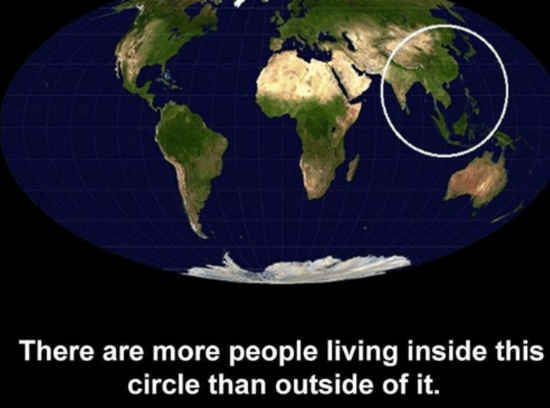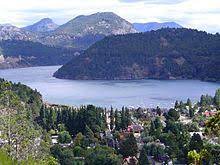Month: December 2021
What I’ve been reading
1. Richard Hanania, Public Choice Theory and the Illusion of Grand Strategy: How Generals, Weapons Manufacturers, and Foreign Governments Shape American Foreign Policy. Could this be the best public choice treatment of U.S. foreign policy? Gordon Tullock always was wishing for a book like this, and now it exists. I see Hanania’s views as more skeptical than my own (in East Asia in particular I think the American approach has brought huge benefits, Europe too), but nonetheless I am impressed by his careful analysis. This is a book that should revolutionize a field, though I doubt if it will.
2. Claire Keegan’s Small Things Like These is one of the best written pieces of literary fiction this year. Very Irish, and it helps to have a one paragraph knowledge of Ireland’s earlier “Magdalen laundries” problem. It is not exciting for the action-oriented reader, but a perfect work within the terms of the world it creates.
3. Justin Gest, Majority Minority. The book considers racial transitions and how majorities may lose their ethnic or racial majority status. To see where America might be headed, the author considers histories from Bahrain, Hawaii, Mauritius, Singapore, trinidad and Tobago, and New York City.
4. Lloyd Llewellyn-Jones, Persians: The Age of Great Kings. The Persian empire had the best infrastructure of any of the great ancient civilizations. The Royal Road for instance stretched 2,400 kilometers. Read more about the whole thing here.
Hannah Farber’s Underwriters of the United States: How Insurance Shaped the American Founding is a good and economically literate treatment of the importance of maritime insurance during the time of America’s founding.
Gregory Zuckerman, A Shot to Save the World: The Inside Story of The Life-or-Death Race for a Covid-19 Vaccine is a good account of what it promises.
In the Douglass North tradition is Jennifer Brick Murtazashvili and Ilia Murtazashvili, Land, the State, and War: Property Institutions and Political Order in Afghanistan.
What are the interesting questions about “apocalypse”?
Comments are open, and I thank you in advance for your inspiration.
Monday assorted links
1. Is there a Groundhog Day effect in stock markets?
2. We acquire energy more rapidly than our ape cousins.
3. The wisdom of Larry Summers (antitrust and inflation). And more on student loans.
4. Brandon is finding it hard to get endorsements.
5. Wayne Thiebaud, RIP, passed away at 101 (NYT).
What should I ask Chuck Klosterman?
I will be doing a Conversation with him. If you do not already know, here is part of his Wikipedia entry:
Charles John Klosterman (born 1972) is an American author and essayist whose work focuses on American popular culture. He has been a columnist for Esquire and ESPN.com and wrote “The Ethicist” column for The New York Times Magazine. Klosterman is the author of eleven books, including two novels and the essay collection Sex, Drugs, and Cocoa Puffs: A Low Culture Manifesto.
His forthcoming book is about the 90s, namely The Nineties: A Book. So what should I ask him? Including about the 90s of course.
Don’t F*ck with Big Sugar
In Modern Principles, Tyler and I analyze the economics and politics of the sugar quota which raises the US price of sugar to about twice the world level. Doug Irwin points us to a revealing passage in John Boehner’s memoir, On the House:
Sugar was never really my fight, but I always thought it was a little silly that the sugar industry has all this power in Washington. But I liked to spend my time on issues I might actually be able to change, and I knew the chances of winning a fight with Big Sugar was basically zero.
At one point in the mid-1990s, I got fed up and decided to yank their chains anyway. I was on the Agricultural Committee and were getting ready to put together the 1996 farm bill. I walked into my office while this was going on and found a sugar lobbyist hanging around, trying to stay close to the action. I felt like being a smart-ass so I made some wise-crack about the sugar industry raping the taxpayers. Without another word, I walked into my private office and shut the door. I had no real plan to go after the sugar people. I was just screwing with the guy.
My phone did not stop ringing for the next five weeks….I had no idea how many people in my district were connected to the sugar industry. People were calling all day, telling me they made pumps or plugs or boxes or some other such part used in sugar production and I was threatening their job. Mayors called to tell me about employers their towns depended on who would be hurt by a sugar downturn. It was the most organize effort I had ever seen.
And that’s why don’t fuck with sugar.
E.O. Wilson has passed away
Here is the New York Times obituary.
I remember in the “early times,” when there was “sociobiology,” this highly unusual, revolutionary, somewhat evil thing, as distinct from evolutionary biology more generally. It is a sign of Wilson’s eventual triumph that such a conceptual split largely has left the seen. Of course the discourse has in other ways also gone backwards.
His Consilience: The Unity of Knowledge is not his best or most important book, but it has influenced me a good deal.
Favorite classical music of the year
Easy picks this time around, I enjoyed three new issues much more than any others:
Igor Levit, Shostakovich, Preludes and Fugues Op.87, plus a disc of Ronald Stephenson [On DSCH], three discs.
Vikingur Olafsson, Mozart & Contemporaries, two discs.
Daniil Trifonov, Bach: The Art of Life. The Art of the Fugue, plus a batch of shorter pieces by Bach family members, two discs.
Three absolutely blockbuster piano releases this year.
Usually I listen to weirder stuff, but I discover that through concerts and meeting up with people, so this year was a “classics of the classics” year for much of my listening.
I also greatly enjoyed three stellar Beethoven recordings:
Eugene Albulescu, Beethoven Piano Concerto #1.
Toke Møldrup and Yaron Kohlberg, Beethoven works for piano and cello.
van Baerle Trio, Beethoven complete works for piano trio.
In all three cases, who has ever heard of these people? Obscure, even to me! And yet they are making better music than even the Beethoven titans of the past. There is a lesson in that.
I may have mentioned these before, but I am still listening to them and still enthralled:
Marek Janowski, Bruckner’s 4th symphony, the Suisse Romande version, not the 1992 recording.
Jean-Paul Gasparian, Chopin.
Tanguy De Williencourt, Beethoven Bagatelles L’Integrale.
Teodor Currentzis, Mozart’s Don Giovanni.
I hope you are all devoting sufficient time to what are some of mankind’s greatest and most profound achievements.
Sunday assorted links
1. Some red states take action to limit the power of their public health authorities.
2. Redux of my earlier post “Don’t judge Covid conditions by the current rate of Covid growth.”
3. Spencer Greenberg podcast with me:
Why might it be the case that “all propositions about real interest rates are wrong”? What, if anything, are most economists wrong about? Does political correctness affect what economists are willing to write about? What are the biggest open questions in economics right now? Is there too much math in economics? How has the loss of the assumption that humans are perfectly rational agents shaped economics? Is Tyler’s worldview unusual? Should people hold opinions (even loosely) on topics about which they’re relatively ignorant? Why is there “something wrong with everything” (according to Cowen’s First Law)? How can we learn how to learn from those who offend us? What does it mean to be a mentor? What do we know and not know about success? What is lookism? Why is raising someone else’s aspirations a high-return activity?
Twice the speed, half the time, no loss of learning
We presented participants with lecture videos at different speeds and tested immediate and delayed (1 week) comprehension. Results revealed minimal costs incurred by increasing video speed from 1x to 1.5x, or 2x speed, but performance declined beyond 2x speed. We also compared learning outcomes after watching videos once at 1x or twice at 2x speed. There was not an advantage to watching twice at 2x speed but if participants watched the video again at 2x speed immediately before the test, compared with watching once at 1x a week before the test, comprehension improved. Thus, increasing the speed of videos (up to 2x) may be an efficient strategy, especially if students use the time saved for additional studying or rewatching the videos, but learners should do this additional studying shortly before an exam. However, these trends may differ for videos with different speech rates, complexity or difficulty, and audiovisual overlap.
See my piece, Why Online Education Works, for more on time and cost savings. Try MRU for great economics videos.
Patagonia, Argentina — St. Martin de los Andes
One of the lovelier spots on the planet, and with excellent food. Thise town has about 35,000 people, and architecture based on Swiss chalets and northern German churches. It is a jumping off point for exploring the surrounding countryside, but very charming in its own right. And there is no larger population center anywhere nearby!
Why is Patagonia so underpopulated?
 Patagonia has wonderful summers and tolerable winters, amazing fresh water resources, lots of green, plenty of land, and it is just…gorgeous. So why does hardly anyone live there?
Patagonia has wonderful summers and tolerable winters, amazing fresh water resources, lots of green, plenty of land, and it is just…gorgeous. So why does hardly anyone live there?
Governance there is hardly perfect, but Chile and Argentina are hardly the worst governed countries on this planet.
Maybe you look at the above picture and are tempted to shriek “Not enough rice!” But for how long can that remain a binding constraint?
Christmas Day assorted links
The new editor-in-chief of Rolling Stone (that was then, this is now)
Noah Schachtmann. From Wikipedia:
In 2003, Shachtman founded Defensetech.org. The site was acquired by Military.com the following year.
Okie-Dokie!
Merry Christmas and Happy Holidays to All!

Click here if you really like this image.

